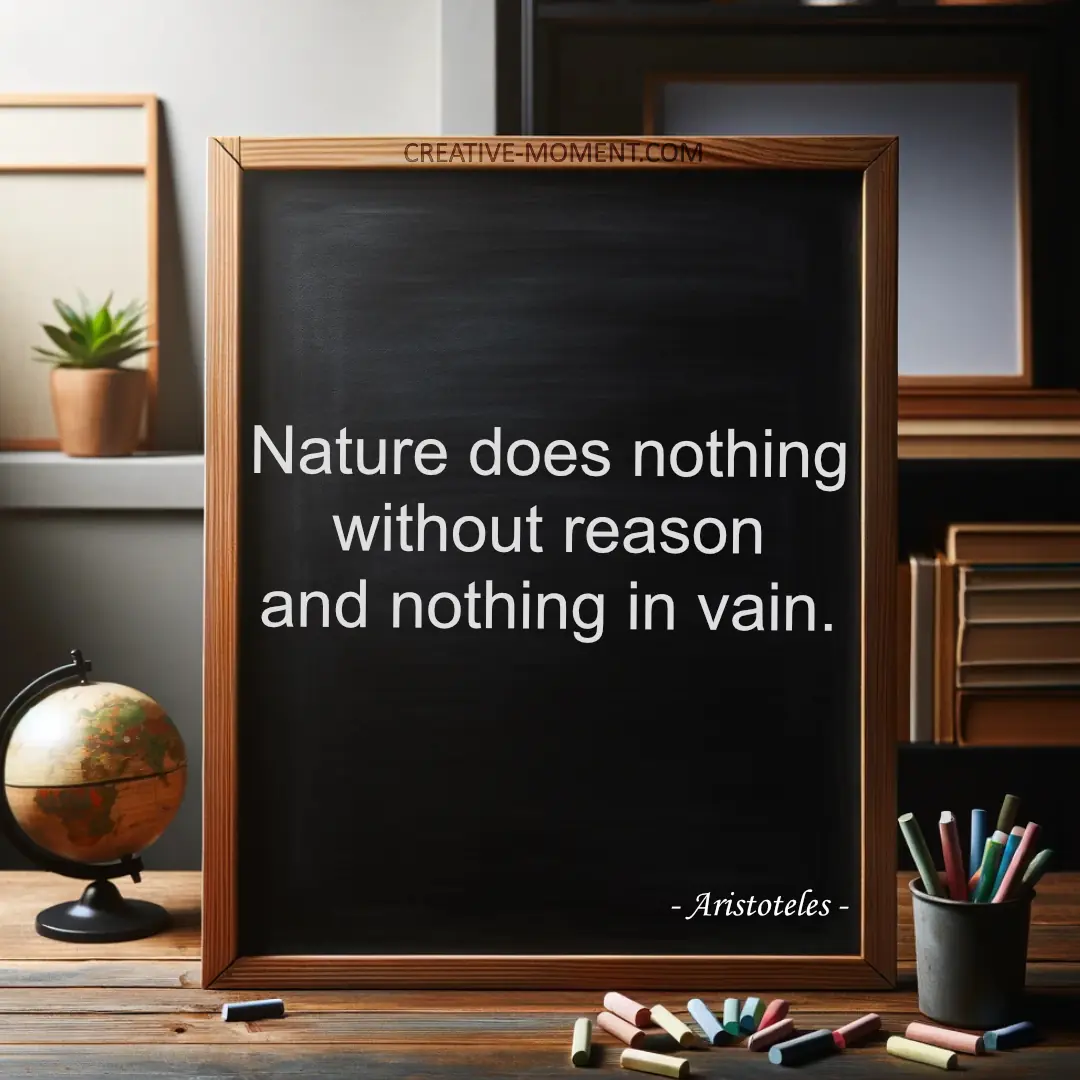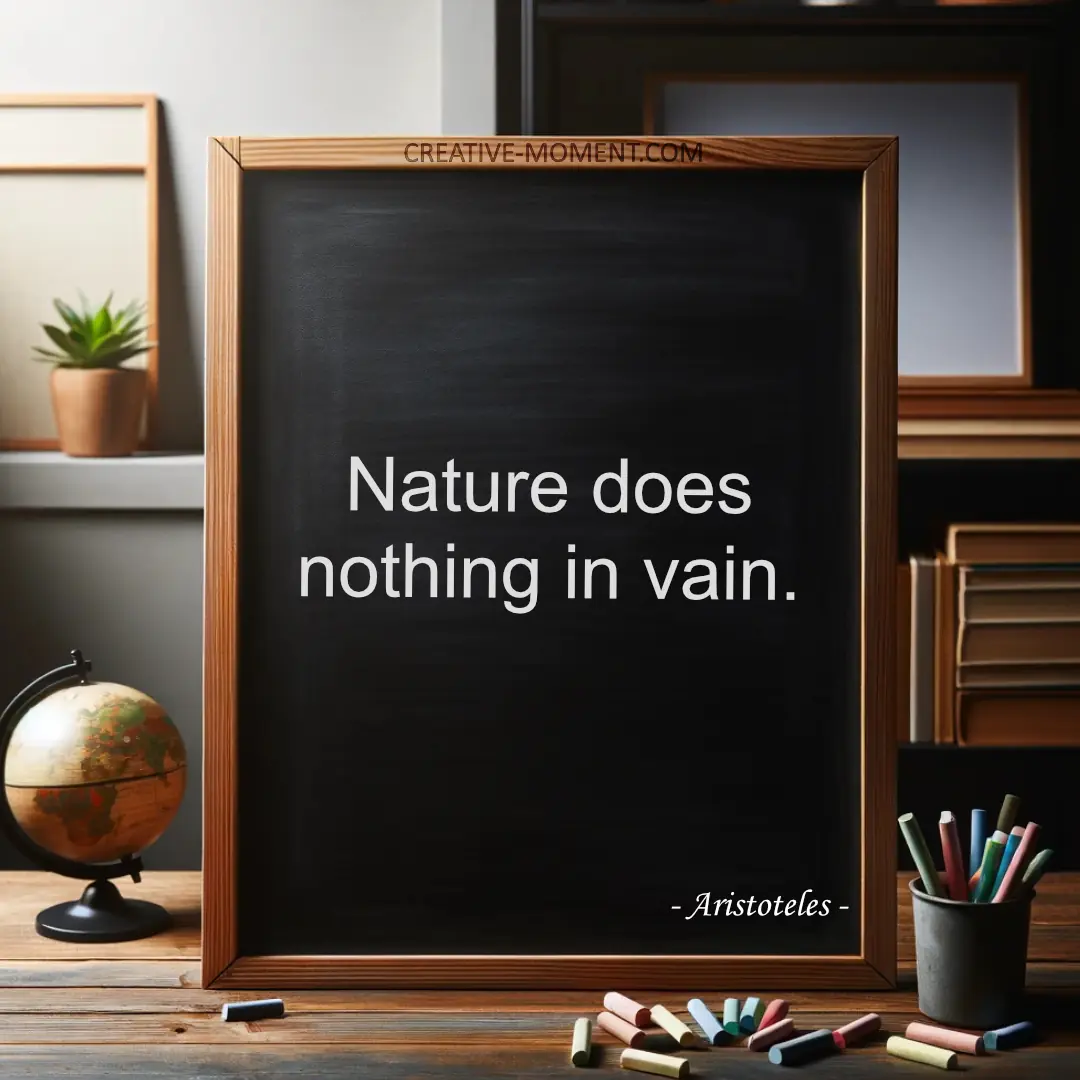Saying: Nature does nothing in vain
Info
- Title: Nature does nothing in vain
- Type: Sayings
- Category: Nature and Environment
- Print: Download as PDF for printing
Aristotle coined the famous phrase “Nature does nothing in vain.”, a significant philosophical statement. This sentence originates from his work "Politics" and illustrates his understanding of nature’s purposefulness and order. Aristotle is one of ancient Greece’s most influential philosophers, whose ideas continue to resonate today.
Origin and Usage of the Quote
The Greek philosopher Aristotle originally formulated the quote in Ancient Greek: “Ἡ φύσις οὐδὲν ποιεῖ μάτην.” (He physis ouden poiei maten). It appears in his significant philosophical work "Politics," written approximately between 335 and 322 BCE. Aristotle highlighted that every element in nature serves a specific purpose and nothing exists without reason. The phrase is frequently cited and remains integral in philosophical, scientific, and literary discussions.
Meaning and Interpretation of the Quote
Aristotle’s statement describes the purposefulness of nature. According to him, every creature and phenomenon in nature fulfills a specific function embedded within a greater whole. Nothing in nature occurs without a deeper meaning or clear objective.
This viewpoint reflects Aristotelian teleology, a doctrine assuming the world has a purposeful structure. Thus, all natural things aim for a certain perfection, and reaching this perfection defines their justification for existence.
- Purposefulness: Everything in nature serves a certain goal.
- Order: Natural processes follow clear, understandable structures.
- Holism: Each element is part of a greater whole.
The quote also underscores understanding nature as a harmonious and structured system. Aristotle viewed natural processes as meaningful and logically coordinated occurrences. His philosophy thus laid foundations for later concepts of ecology and sustainable thinking.
In modern contexts, this quote is often invoked to explain ecological relationships or biological systems. It illustrates that natural processes always possess cause and benefit, forming the basis for a sustainable balance.
Similar images
 Back to overview
Back to overview

